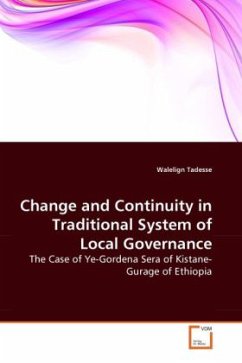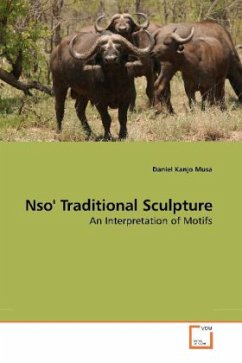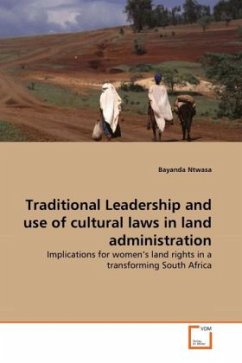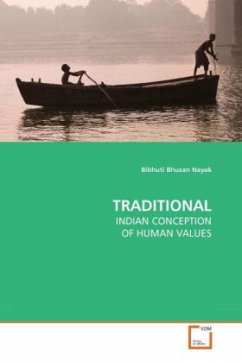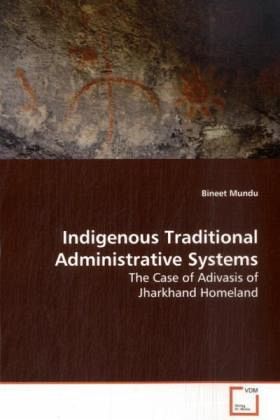
Indigenous Traditional Administrative Systems
The Case of Adivasis of Jharkhand Homeland
Versandkostenfrei!
Versandfertig in 6-10 Tagen
32,99 €
inkl. MwSt.

PAYBACK Punkte
16 °P sammeln!
Adivasi means the First People. This is how theindigenous peoples of Indian peninsula prefer to callthemselves. This book investigates into some of theimportant historical facts of the Adivasis incentral-east India Jharkhand. It is by going intothe primary and secondary sources to validate theimportant role played by the customary institutionsof Adivasis in their historical continuity. Therelevance of this institutions conceptualorganization part of the indigenous knowledge, inthe course of development of the state, heredemonstrates it as a module in the discourse ofsocial sciences. This book ...
Adivasi means the First People. This is how the
indigenous peoples of Indian peninsula prefer to call
themselves. This book investigates into some of the
important historical facts of the Adivasis in
central-east India Jharkhand. It is by going into
the primary and secondary sources to validate the
important role played by the customary institutions
of Adivasis in their historical continuity. The
relevance of this institutions conceptual
organization part of the indigenous knowledge, in
the course of development of the state, here
demonstrates it as a module in the discourse of
social sciences. This book also examines the conflict
between the communitarian rights in which these
institutions are already based on, and the Indian
state s embedded-ness in a legal framework based on
the concept of individual rights, ownership etc. Most
significantly, this study attempts to assert the
relevance of the Adivasi s geo-cultural-political
institutions in the present context of the politics
of the Indian state.
indigenous peoples of Indian peninsula prefer to call
themselves. This book investigates into some of the
important historical facts of the Adivasis in
central-east India Jharkhand. It is by going into
the primary and secondary sources to validate the
important role played by the customary institutions
of Adivasis in their historical continuity. The
relevance of this institutions conceptual
organization part of the indigenous knowledge, in
the course of development of the state, here
demonstrates it as a module in the discourse of
social sciences. This book also examines the conflict
between the communitarian rights in which these
institutions are already based on, and the Indian
state s embedded-ness in a legal framework based on
the concept of individual rights, ownership etc. Most
significantly, this study attempts to assert the
relevance of the Adivasi s geo-cultural-political
institutions in the present context of the politics
of the Indian state.




